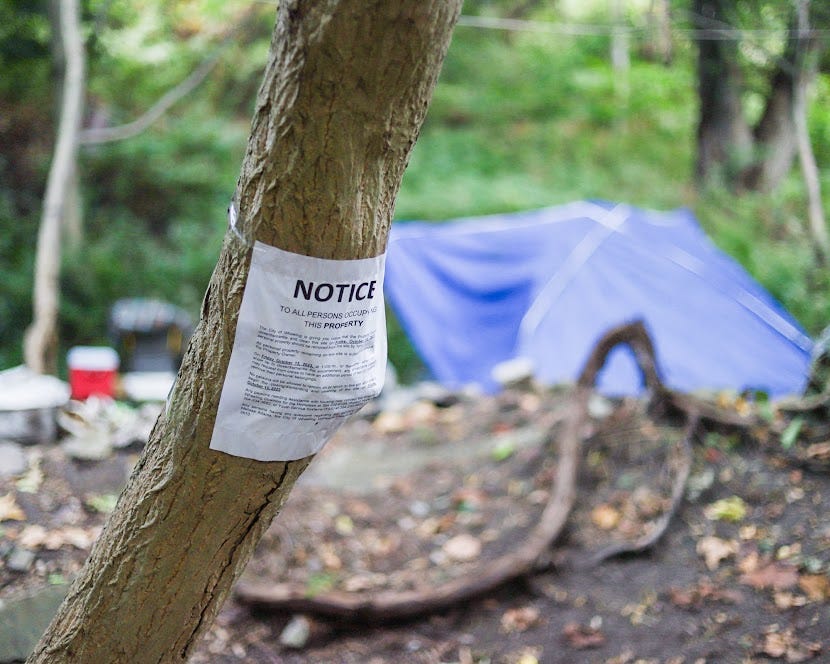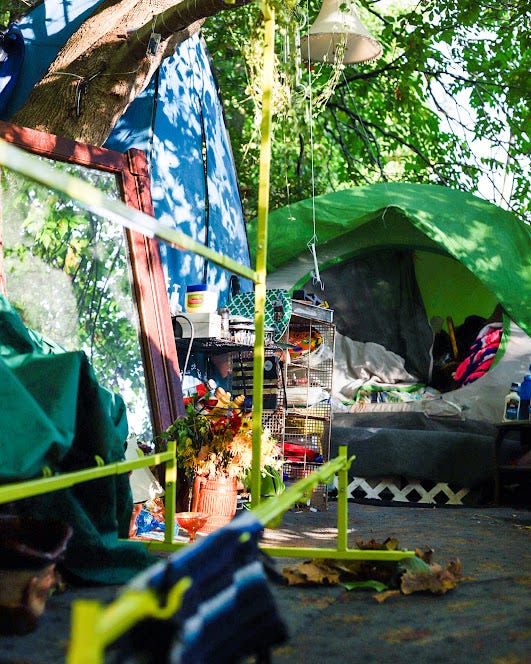Urban camping ban takes effect; Residents left with more questions than answers
The camping ban adopted by Wheeling city council goes into effect January 1, 2024. Despite service providers sounding the alarm over multiple issues, city officials move forward with enforcement.
As Wheeling welcomes the new year, a controversial ordinance banning camping in the city will take effect. Despite advocates claiming the ban is a solutions-driven approach, homeless residents and service providers have been left with more questions than answers.

The urban camping ban, adopted by the city council on November 7 by a vote of 5-2, was amended to allow a city-sanctioned, managed camp to be designated for people experiencing homelessness. With two months to prepare for the ordinance’s effective date of January 1, 2024, city leaders have only scratched the surface of preparing for the site.
The city has not explained the process of enforcing the ban, leaving service providers confused and homeless residents concerned. It is unclear if the city will give two-week notices to camps before demolition, as has been the practice for previous camp evictions per federal guidance.
It is also unclear if individuals in violation of the ban will be cited just once, or daily, or how the city will respond if individuals fail to appear before court or pay their fines associated with the ban.
The enforcement of this ban raises concerns with some in the community regarding police interactions with individuals in violation of the ban. Fears have also surfaced regarding a potential spike in breaking-and-enterings as people seek shelter from the cold.
As of now, city manager Robert Herron has provided a list of ‘rules’ for a managed camp to service providers, but the project still lacks leadership, funding, staff, or even a location.
The ban prohibits any person from sleeping, storing personal property, or cooking on public land.
Service providers have sounded the alarm in the months preceding the ban’s implementation, asking city officials for updates on a managed camp. In response, some leaders have pointed to the Winter Freeze shelter as the interim solution while plans for a managed camp are discussed.
The Life Hub’s Winter Freeze shelter officially opened its doors on December 15, more than a month after near-freezing temperatures reached the city. The project has largely been seen as a success, but there are several issues present at the shelter.
First, the Winter Freeze shelter is closed from 8:00 a.m. to 8:00 p.m. daily, and Catholic Charities, which acts as a day-warming center, closes at 4:00 p.m. leaving homeless residents in the cold for hours.
In previous years during periods of shelter-closures people would seek respite in their tents for warmth. Now, with urban camping banned, a majority of these people will be left in the elements.
Second, the Winter Freeze shelter has a limited capacity. Currently, there are 50 beds available on any given night. Since December 15, 120 unique individuals have sought services through Life Hub’s Winter Freeze shelter.
Compounding this issue, it is reported by volunteers at the shelter that the designated women’s section is already at capacity. Plans to increase capacity are in the works, but as of writing this article have not been implemented.
Third, the Winter Freeze shelter, despite being low-barrier, is not accessible for every individual experiencing homelessness. This is due to a variety of reasons, including those suffering from PTSD or sexual abuse having issues in open sleeping arrangements, pets not being permitted in the facility, and a lack of storage space for personal belongings.

Those staying at the shelter are permitted to bring a small bag. In previous years, individuals would keep a majority of their possessions at their camp, but with the camping ban barring individuals from doing this, many will have to prioritize their already few items.
The camping ban will also affect people’s ability to feed themselves. For those people experiencing homelessness who work they often miss meal times at local soup kitchens. The ban prohibits people from cooking outside on public land, increasing fear that some will go hungry.
Critics of the ordinance have called on council to rescind the ban, or at least suspend it until a managed camp can be erected. At the time of writing this article, the only information we have from the city comes to us via The Intelligencer where city manager Robert Herron confirmed enforcement of the ban will begin January 1, 2024.
This reporter reached out to the city manager’s office for comment. We will update the story if or when a comment is received.
The city council meets on Tuesday, January 2, and Tuesday, January 16. On the city council’s agenda for their January 2nd meeting there is no mention of the camping ban or managed camp.

